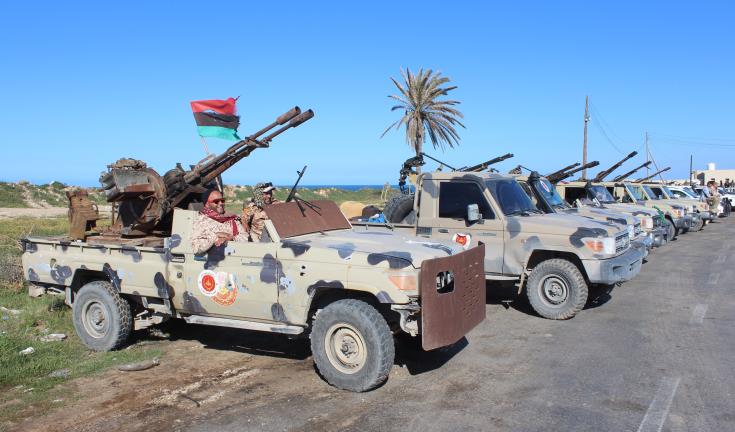By Cyril Widdershoven
The East Med-Turkey confrontation, which has heated up over the last few days after Ankara’s new offshore drilling in Cyprus announcement, could reap the rewards of the Berlin Conference on Libya.
The shaky results signed by all parties attending, including Turkey, Russia, Europeans and the main Libyan parties, has increased the visibility of the geopolitical power struggle currently in place not only in North Africa but also in the East Med.
The Berlin conference, officially organized to bring a ceasefire and a political solution to the ongoing military conflict between the UN-backed Tripoli-based GNA government of El Serraj and General Haftar’s LNA and its allies, got traction after NATO-member Turkey put its military power behind Tripoli.
To prevent a military escalation in Libya, possible with a scenario that several NATO member countries (France/Italy) and Arab powers could be fighting Turkish forces by proxy, brought the parties to Berlin. The outcome of the Berlin Conference on Libya this weekend, however, is as expected.
Statements regarding the implementation of a ceasefire, full blockade on arms deliveries and a so-called 5+5 council set up by GNA and LNA, are seen as a step forward, but the reality is the opposite.
The crisis keeps on escalating, while the real power players in the Libyan conundrum are not interested to change their strategies.
Given that any diplomatic adventure needs to be supported, the current situation will not be solved in this way.
The positive reactions from Germany, Russia, Turkey and others, should be taken with a grain of salt. While debating diplomatic adventures and a political solution, the reality on the ground shows that all sides are looking for military options.
Libyan General Haftar’s military forces (LNA) and allies have even upped the ante by calling for a blockade of the Libyan oilfields, threatening to cut off the GNA’s main revenue stream.
However, there is one success to be published, but indirectly.
Erdogan’s support for Libya’s fledgeling GNA government, and the EEZ deal between Tripoli and Ankara, has resulted in deepening cooperation within the East Med Gas Forum countries.
Recently, the EMGF participants stepped up their efforts to increase and institutionalize their efforts, not only on energy and economics but militarily too.
Due to an aggressive Turkish position taken in Libya and the East Med, European countries, such as France and Italy are cosying up to the EMGF. Paris has officially asked to become a member.
For the East Med’s offshore future, it now seems that Erdogan’s Ottoman Empire dreams are starting to backfire.
After a lull in support for the East Med region, Europeans have started to fully back Greece, Cyprus, Egypt and Israel in their confrontation with Ankara.
Erdogan’s military support, and the reported transport of Syrian extremist fighters to Libya, has done Turkey’s position no good at all.
Even Putin’s backers are starting to become wary of Ankara’s power projections.
For Moscow, a supra-regional power strategy is in place, in which Turkey is prominent, but Russia’s interests in Egypt-UAE-Saudi Arabia, Syria and Libya are more important.
Historically, the Moscow link with the region is stronger than the perceived Ankara-Moscow axis.
The EMGF parties should monetize the situation, using Moscow and European interests to constrain Turkey and block its encroachment in the East Med and Libya.
At the same time, the EMGF should use the Libyan focus of European powers at present, to entice not only France but also Italy, UK and others to be involved in the offshore gas developments and security structure.
All major energy companies are present in the EMGF countries, such as in Egypt and Cyprus.
Using energy as a geopolitical instrument is clear, now it is time to act.
By further integrating the EMGF in the economic-geopolitical strategies of European powers (and NATO), Libya’s future could be an asset for gathering support.
Turkey’s moves can be the straw that breaks the back of the Erdogan camel soon.










